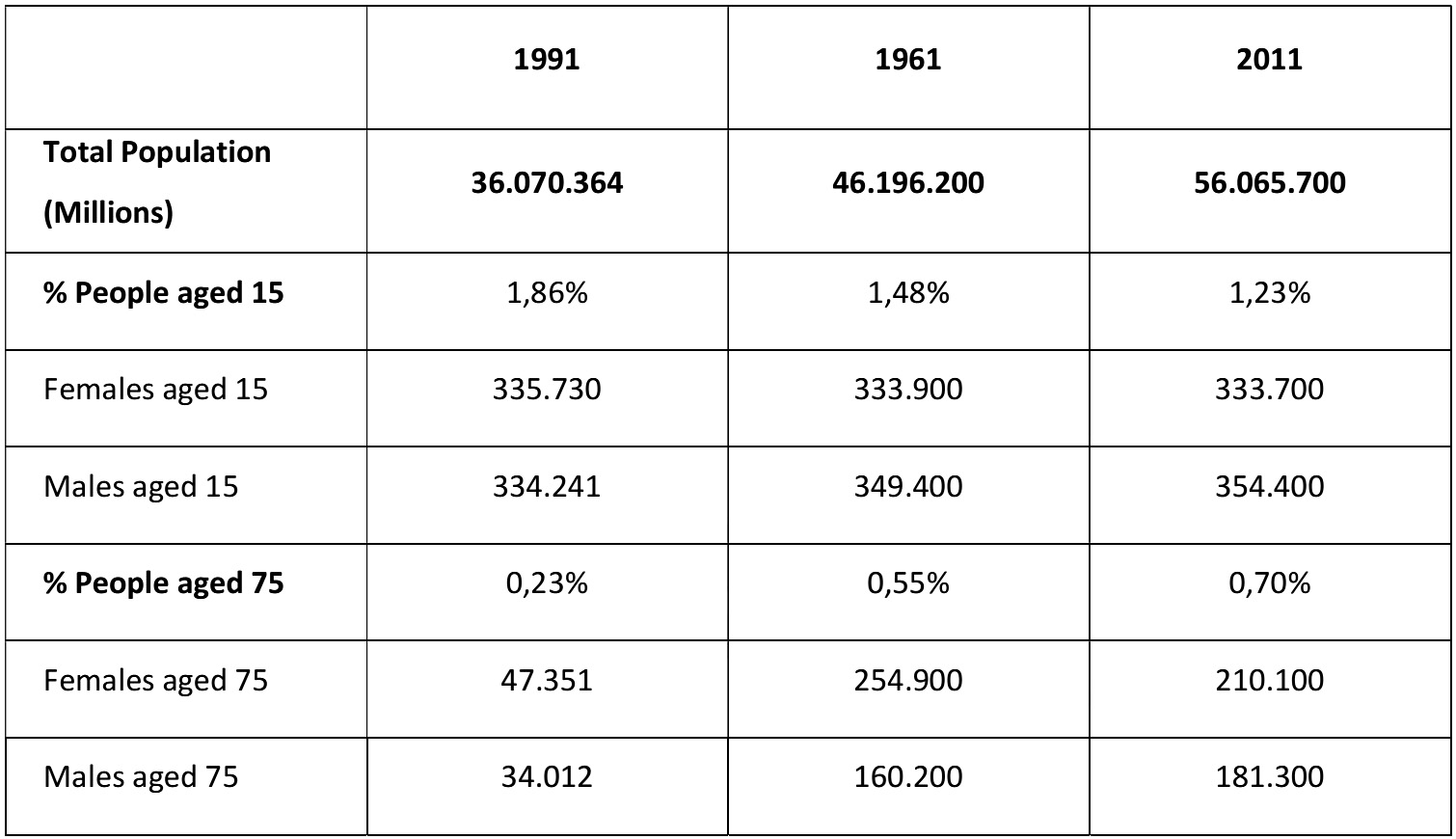The table shows the proportion of female and male aged 15 and aged 75 from 1911 to 2001 in the UK.
Write at least 150 words.

Government should invest more money in science education rather than other subjects to develop the country. Do you agree or disagree?
Give reasons for your answer and include any relevant examples from your own knowledge or experience.
Write at least 250 words.
WRITING TASK 1
The table gives information about the percentages of males and females at the age of 15 and 75 in the UK during the years 1911, 1961 and 2011.
Overall, there was a decrease in the proportion of people aged 15, whereas the figures for those aged 75 increased throughout the period. In addition, there were significantly more elderly women than men.
Regarding those aged 15, the number of females experienced an overall downward trend, beginning with 335,730 in 1911 and finishing with 333,700 in 2011. The opposite was seen for males, as the number of 15 year-olds increased from 334,241 in 1911 to 354,400 in 2011.
For those aged 75, the female population was significantly larger than the male, and there was a similar trend between the two genders. Starting at 47,351 females and 34,012 males in 1911, the figures for females surged to a peak of roughly 255,000 and 160,000 for males in 1961. Following this, the number of females aged 75 decreased to 210,100 people, while that of their male counterparts continued to rise to 181,300 in 2011.
(180 words)
WRITING TASK 2
It is said that government funding for education should give preference to science-based subjects over others, in an attempt to help boost a country’s future development and progress. Although an increase in scientific developments can have many benefits to national progress, this essay disagrees that science is the primary contributor.
There is no question that the advent of modern science has brought with it a number of improvements to the way that countries and societies function. For example, increases in electrical and computer based technologies have led to much more streamlined and efficient workplaces. Computers and computerized machinery can now do the work of what would have previously been carried out by humans, allowing greater efficiency and higher productivity output. Another benefit that modern science has granted is the development of renewable energy. Sources of renewable energy, such as solar and wind generated power, are beginning to help ease the planet’s reliance on fossil fuels.
That being said, an increase in scientific education and development must not be the main measure of a country’s progress. It can be seen that the study of many other disciplines of education can also attribute to a countries progress. Take, for example, the Arts and Humanities. Subjects such as History and Philosophy have allowed us to gain a better understanding of humanity and can help to gain more insight into how we can move forward as a race. Other subjects such as the Arts, allow societies and individuals to express themselves creatively through mediums such as music, film and other art forms. It can be argued that this can also help to improve the quality of people’s lives and therefore help towards a countries overall development.
In conclusion, although developments in science have led to many beneficial advantages for most countries, science alone is not the key contributor to a country’s progress. In my opinion, most countries would benefit greater from a more well-rounded education, with emphasis on all disciplines, not only that of science.
(331 words)
